Family Homelessness INNFormation Series: Episode 3
Episode 3: Trauma-Informed Care. Watch our interview with Amanda St. Laurent, Director of Programs at Inn from the Cold and Kara Layher, Communications Specialist at Inn from the Cold HERE.
Watch our interview with Joseph Mastromattei, Housing Program Manager at Alpha House HERE.
Watch our interview with Amanda Rae Storteboom, Director of Integration and Special Projects at CUPS HERE.
Part three of the series we are exploring the practice of Trauma-Informed Care (TIC), a strengths-based framework that is responsive to the impact of trauma in children and adults, its relevance to our work and how implementing this framework can assist families experiencing homelessness to achieve independence.
TIC is defined as “an organizational structure and treatment framework that involves understanding, recognizing and responding to the effects of all types of trauma.”[1] One of the core tenets of the practice is the belief that asking, “what happened to you?” garners greater results than the accusatory “what’s the matter with you?”, especially when children are involved. At the Inn, this means all our interactions with children and their parents are framed through the lens of seeking to understand not just the immediate circumstances that brought them to the Inn today, but also the depth of trauma they’ve experienced throughout their lives. This helps us frame our supports to meet the unique needs of each individual and family to better facilitate healing and recovery.
Background on Trauma-Informed Care
A core component of TIC is founded on the belief that childhood experiences, both positive and negative, have a profound impact on the physical, emotional and mental health of the adult. Much of the foundational research in this area has been referred to as Adverse Childhood Experiences (ACEs)[2]. The term ACEs comes from a longitudinal study of over 17,000 patient volunteers by the American health maintenance organization CDC-Kaiser Permanente. The study asked each participant about their experience of 10 types of childhood trauma which they may have encountered before the age of 18. The study found that ACEs are common and often occur together. It also determined that ACEs have a close-response relationship with many health, social and behavioral problems later on in life[3]. Along with increased risk of heart disease, cancer, lung disease and shortened lifespan, having four adverse childhood experiences was related to increased risk of alcoholism with an ACE score above six exposing the individual to a 3000% increase in risk of attempted suicide. Of significant import is the finding that implementing and practices can mitigate against the long-term impact of ACEs through early intervention, prevention and trauma informed approaches. While toxic-stress is extremely detrimental to healthy early childhood development, a child can become resilient to their experienced adversities through positive relationships with caring adults.[4]
Trauma-Informed Care and Practice at the Inn
According to the 2017 Calgary Recovery Services Task Force, Final Report and Recommendations, the results of a survey commissioned by the Task Force that looked at the lived experiences of 300 homeless Calgarians with complex health experiences showed that 299 of the respondents had an average ACEs score of 4.49[5]. Given that ACE scores above four are associated with significant risk for poor mental and physical health outcomes, we must ensure that we are implementing appropriate and timely measures to mitigate against both the toxic stress of living in a homeless shelter as well as the adverse childhood experiences vulnerable children face even before homelessness becomes part of their lives.
Families are dynamic and complex, and domestic situations are key contributors to a significant portion of ACEs. Educating adults on trauma and the influence on early childhood development is crucial for them to understand themselves and understand how they can form better and healthier relationships with their children and the people around them. As well, a trauma-informed approach breaks down the barriers marginalized populations sometimes feel with service providers. As mentioned earlier, it changes the conversation from “what is the matter with you, or what is wrong with you?” to “what happened to you and how can I help?” It changes the provision of care, breaking it down from authority providing instruction, to assisting and encouraging individuals to get the help they need. We know from our work that when individuals feel encouraged and empowered they are more likely to achieve independence faster.
We have the opportunity to providing caring and healthy relationships in the lives of those who have experienced trauma. By changing our practices to be more trauma-informed we can encourage healthy healing to those who are in need of our services.
While we explore this topic we will be talking with Calgary Alpha House and CUPS on their trauma-informed practices as well as discussing harm reduction in the homeless-serving family sector.
Resources:
https://www.cbsnews.com/news/oprah-winfrey-treating-childhood-trauma/
http://www.traumainformedcareproject.org/
https://www.cdc.gov/violenceprevention/acestudy/about.html
http://www.ajpmonline.org/article/S0749-3797(98)00017-8/abstract
http://homelesshub.ca/solutions/training/trauma-informed-care
http://homelesshub.ca/resource/trauma-informed-practice-guide
https://www.ted.com/talks/nadine_burke_harris_how_childhood_trauma_affects_health_across_a_lifetime
https://centerforyouthwellness.org/
https://kpjrfilms.co/paper-tigers/
In case you missed it:
You can watch Episode 1 HERE, or read our blog summary HERE. You can watch episode 2 HERE, read our blog summary HERE, and read an interview with our data analyst Anthony Eagle HERE.
Over the next few weeks we will be releasing weekly episodes where we sit down with experts in homelessness to discuss issues pertaining to family homelessness.
The episodes are:
Episode 1: Differences between Family & Adult Single Homelessness;
Episode 2: Data and Research;
Episode 3: Trauma-Informed Care;
Episode 4: Economic Barriers and Solutions;
Episode 5: Social Inclusion and the Case for Adequate;
Episode 6: Affordable Family Housing.
[1] Trauma Informed Care Project. (n.d.). Trauma Informed Care. Retrieved March 2018, from: http://www.traumainformedcareproject.org/
[2] Centers for Disease Control and Prevention. (2016, April 01). Violence Prevention. Retrieved March, 2018, from: https://www.cdc.gov/violenceprevention/acestudy/index.html
[3] Centers for Disease Control and Prevention. (2016, April 01). Violence Prevention. Retrieved March, 2018, from: https://www.cdc.gov/violenceprevention/acestudy/about.html
[4] 60 Minutes (2018). Oprah Winfrey: Treating childhood trauma. Retrieved from: https://www.cbsnews.com/news/oprah-winfrey-treating-childhood-trauma/
[5] Calgary Recovery Services Task Force. (2017). Final Report and Recommendations. Retrieved March, 2018, from: http://www.recoveryyyc.ca/

















